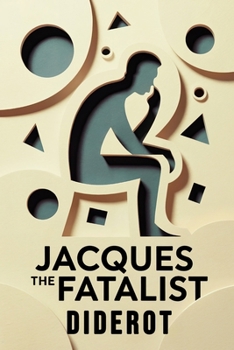Jacques the Fatalist: New Translation
Jacques the Fatalist stands as one of Denis Diderot's most innovative and philosophically provocative works, a novel that gleefully dismantles the very conventions of storytelling while exploring profound questions about human agency and destiny. Written in the 1770s but not published until after Diderot's death, this remarkable narrative follows the journey of Jacques, a servant, and his unnamed master as they travel through the French countryside, their path interrupted by countless digressions, stories within stories, and the author's own intrusive commentary.
The novel's central conceit revolves around Jacques's unwavering belief in fatalism-the philosophical position that all events are predetermined and human free will is an illusion. This conviction, inherited from his former captain's teachings, shapes every aspect of Jacques's worldview and provides the philosophical backbone for Diderot's exploration of determinism versus choice. Yet the brilliance of the work lies not in its systematic defense of any particular philosophy, but in its playful examination of how such beliefs actually function in daily life.
Diderot constructs his narrative as a deliberate rebellion against the neat, ordered storytelling of his contemporaries. The reader expecting a conventional plot will find themselves constantly frustrated and delighted by the author's refusal to provide closure, his habit of abandoning storylines mid-sentence, and his direct addresses that acknowledge the artificial nature of all fiction. The promised story of Jacques's love affairs serves as little more than a framework for philosophical dialogue, bawdy tales, and Diderot's meditation on the relationship between author, character, and reader.
What emerges is a work that feels remarkably modern in its self-consciousness and experimental approach, anticipating many of the narrative innovations that would not become commonplace until the twentieth century. Jacques the Fatalist ultimately asks whether we are the authors of our own stories or merely characters in a larger narrative beyond our control, all while demonstrating the strange freedom that comes from embracing uncertainty itself.





